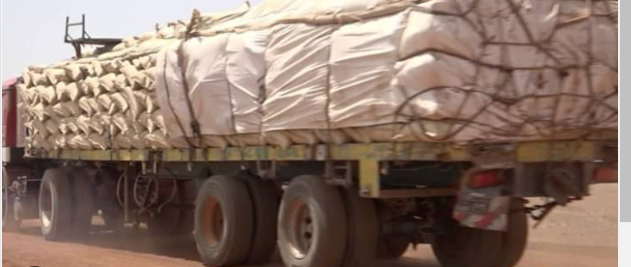The authorities in South Sudan’s Warrap State on Monday flagged off trucks loaded with sorghum to be distributed and sold to citizens in six counties at subsidized prices.
Warrap state is one of ten states that has been severely affected by hunger as a result of heavy rains and resultant flooding since last year.
A malwa (3.7 kilograms) of sorghum currently costs SSP 2,700 in Kuajok town and 3,000 in the counties according to an official.
The national finance ministry purchased 46,560 (90 kg) sacks of sorghum from Sudan to help alleviate hunger in Warrap State.
Amiir Amet, the Warrap State acting governor lauded President Salva Kiir for buying the sorghum from Sudan and announced that the malwa will be sold at SSP 1000.
“I appreciate President Kiir for observing that Warrap needs food we thank him for purchasing food from Sudanese traders through the Sudanese government,” she said. “We are launching the distribution and transportation of food to different counties and payams of Warrap State and upon the delivery, the committee will start selling at affordable prices at designated points across the state.”
“The price will be the same all over the state,” Amet added.
She said a committee will monitor the transportation, distribution, and sale of the sorghum to the payams and counties to avoid theft and other malpractices.
“Every payam will get 500 bags and a bag will retail for SSP 30,000 instead of the current market rate of 66,000,” she said. “The transit of sorghum to the counties is under the management of the technical committee which is monitoring too to ensure that loaded trucks reach their destinations.”
Meanwhile, Maluach Lueth, the commissioner of Gogrial East County, confirmed the distribution but said the allocation to his county was too little.
“My county’s share is 3, 600 sacks of Sorghum and that is not enough because the level of vulnerability here is very high compared to the amount of food distributed but it is better than nothing,” he said. “It will be shared among the people in the county and when it gets finished, we will request our government to supply more food. I thank our national and state governments for supplying food to our people.”




